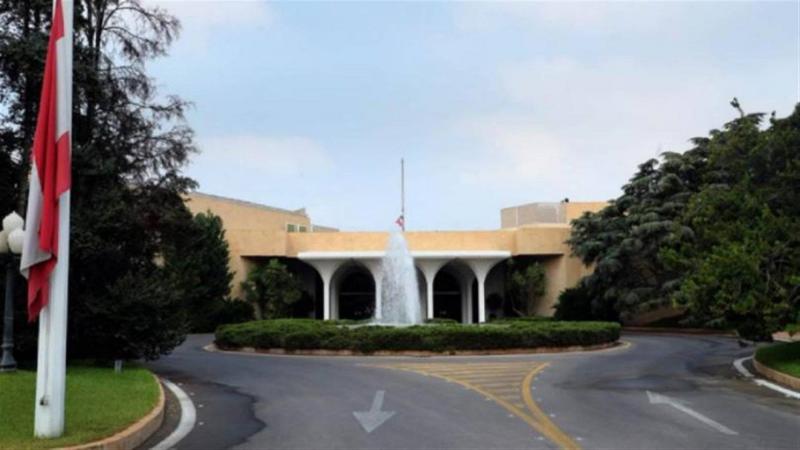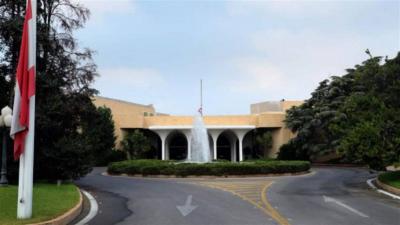The country has entered a new phase in handling the presidential election following President Nabih Berri's announcement of support for the candidacy of Sleiman Frangieh and his call for others to finalize their genuine nominations to proceed to a decisive electoral session where democratic competition will be the basis. It is expected that the upcoming phase will witness more positions and developments related to the presidential election, but it remains difficult to anticipate the timeline for the resolution and the election date for the president.
A five-party meeting is set to take place in Paris before the presidential resolution in May. Sources quoted by Al-Diyar indicate that the coming weeks will see external movements focused on preparing for a second five-party meeting of foreign ministers, aimed for the second half of April or early May. The information further suggests that the U.S. administration is likely to engage in communications and consultations with Saudi Arabia and Qatar regarding the course and future of the Lebanese presidential election, alongside ongoing French efforts aimed at persuading Saudi Arabia to improve its position and assist in completing this election.
According to the information available, it is not unlikely that a resolution could be reached in May, especially given that the deterioration of the situation in Lebanon may lead to consequences exceeding Lebanon's borders. These efforts take into account that discussions regarding the resolution of the presidential choices will coincide with what can be described as a package for the upcoming phase, which includes the prime minister and her work program. However, a prominent political source informed Al-Diyar that talking about a specific timeline for resolving the presidential election is premature and not based on current available data. The source mentioned that several factors indicate the possibility of electing a president by this summer, prior to the end of the term of the Governor of the Central Bank, noting that current ad hoc measures in the financial and economic arenas amid ongoing decline cannot continue for more than a few months, and leaving the position of the Governor vacant without a president could lead to dangerous ramifications.
Regardless of the timeline for the presidential resolution, President Berri's announcement marks a turning point between the previous and the upcoming phases. In this context, a source close to President Berri stated, "It is clear that after the President's words, we have entered a new, more serious phase towards resolving the matter. There is no doubt we have entered the stage of announcing nominations, and it is up to others to meet his position and finalize their nominations." In response to a question about the expected timeline for electing a president, he answered, "Hopefully, it will not be prolonged." He stressed that the current conditions faced by Lebanon and its people can no longer afford the luxury of time and waiting, necessitating the election of a president as soon as possible.
He added, "We have entered a new and serious path concerning the presidential election. We want to elect the President of the Republic and have announced our candidate, and it is up to others to follow suit for the session to be different from previous sessions." According to a parliamentary source in the Development and Liberation bloc, the path of the presidential election after President Berri's recent stance has shifted towards an approach he has sought since calling for dialogue twice, aiming to establish some kind of consensus or limit the competition to two or three serious candidates for a session where democratic competition will take place.
The source relayed President Berri's reaffirmation that he is ready to call for a session when this matter is achieved, and he is prepared, accordingly, to hold one, two, or three sessions a week if necessary to elect the President of the Republic. According to a prominent parliamentary source in a Christian bloc, the most notable aspect of President Berri's remarks was his call to proceed to an electoral session and adhere to competition. It was noted that this call for competition considers the difficulties and impossibility of holding a session with full consensus or an outcome determined in advance due to the current division and fragmentation in the council. Therefore, the available exit is to proceed with competition.
The question arises: Can such a session take place and achieve a quorum? So far, it is difficult to give a definitive and conclusive answer, but analyzing the declared positions indicates the following:
- The announcement by the leader of the "Forces" party, Samir Geagea, two days ago of a boycott and working to ensure the lack of quorum for a session where Sleiman Frangieh would be elected. His position is supported by the Renewal bloc, consisting of four deputies; thus, the number of deputies declaring they will boycott, according to current announcements, does not exceed 23.
- Other blocs have not determined their positions and none have announced a boycott of the session as Geagea has. This includes the positions of the Strong Lebanon bloc deputies, the Kataeb, the Change deputies, and independents. The remaining blocs have a clear position and will attend the session.
A source in the "Free Patriotic Movement": Participating in the election, not obstructing it. Al-Diyar asked a prominent parliamentary source in the "Free Patriotic Movement" whether the "Strong Lebanon" bloc aligns its stance with Geagea's. He responded, "We have not discussed this issue, but we are in favor of participating in the presidential election and not obstructing it; we support every bloc or deputy to vote for their candidate, and we are not in favor of blocking the way for others."
Regarding the Movement's candidate, he stated, "We have not named a specific candidate yet, and we are still keeping the doors open for reaching an agreement with any party or bloc on a candidate." On another note, an informed source indicated that U.S. Ambassador Dorothy Shea's recent moves are in line with following up on the outcomes and atmosphere after the five-party meeting held in Paris. He added, "The American and French ambassadors previously conducted rounds of meetings with Lebanese officials and politicians following the five-party meeting and the tour of the five ambassadors, and she has been on a second tour for days to confirm that the interest in the situation in Lebanon is ongoing and continuous. She communicated this position to President Berri and other leaders, indicating that the five countries did not settle for the meeting in Paris but are continuing to monitor the Lebanese situation, especially developments regarding the presidential election, renewing the call for electing a president."
She reiterated that electing a president is a matter for the Lebanese. She stated, "Elect a president, and we do not have a problem with or a specific name in mind," but emphasized that the upcoming phase and the work program of the future government require implementation of reforms. In response to a question, the source remarked, "The American ambassador did not speak or address any new initiatives or ideas regarding the presidential election but repeated the previous call for urging the Lebanese to resolve their decision on their president."
The source further noted that both the American and French ambassadors want to affirm that Lebanon remains a priority and will not be neglected. Regarding the Saudi position, the source clarified based on available information that the talk of a Saudi veto on Frangieh has not been raised with Lebanese officials or leaders and that this matter is still merely "rumors in the Lebanese manner," emphasizing that the Saudis have not deviated from what was discussed in the five-party meeting in Paris and did not mention vetoes or names, focusing instead on the President's policy according to previously declared positions.
In this context, member of the Democratic Gathering bloc, MP Bilal Abdullah, commented that "the Saudi party has not entered the game of names and does not want Lebanon to be a platform for attacks against it. From my position, I do not allow anyone from a state to have a veto on any candidate." Abdullah's comment follows reports from some media outlets that MP Wael Abu Faour informed Progressive Socialist Party leader Walid Jumblatt that Saudi Arabia is placing a veto on Frangieh. Abdullah also stated, "Frangieh is a serious candidate; however, the possibility of electing him is a matter to be discussed with the party leadership, and we will state our position in the session once it is identified, and we are open to discussing any national settlement."




